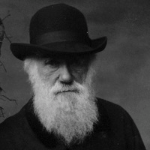Foresight and Fiction

11 anos
5.3K Visualizações
Categoria:
Descrição:
Science fiction is often termed a literature of prediction, but is it really, and, if so, how does it accomplish that? Hugo Award-winning science-fiction novelist Robert J. Sawyer explores the speculative mindset, the role science fiction plays in the intellectual landscape, and how science-fictional thinking about the future can be applied to business and government. Along the way, he shows how 2001: A Space Odyssey inspired an entire generation of computer scientists, looks at why Star Trek sets so much of our research agenda, and examines the notion of the technological singularity. He points out some of science fiction’s greatest predictive successes, and he also spotlights where the science-fictional vision has come up short and explains the foresight lessons to be learned from those failures.
Biography
Robert J. Sawyer’s bestselling science-fiction novels are known for “marshaling a daunting quantity of fact and theory from across scientific disciplines†(National Post) to produce “page after page of bold scientific extrapolation†(The New York Times). New Scientist calls his work “scientifically plausible, fictionally intriguing, and ethically important,†and artificial-intelligence pioneer Marvin Minsky says, “Lately, I’ve been inspired by the work of Robert J. Sawyer.†The TV series FlashForward was based on his novel of the same name.
Rob is one of only eight people in history to have won all three of the science-fiction field’s top awards for best novel of the year: the Hugo (which he won for Hominids), the Nebula (which he won for The Terminal Experiment), and the John W. Campbell Memorial Award (which he won for Mindscan). According to the American science-fiction trade journal Locus, he is the #1 all-time worldwide leader in number of award wins as a science-fiction or fantasy novelist. His latest novel is Triggers (published by Orion/Victor Gollancz).
Rob has published in both of the world’s leading scientific journals, Science (guest editorial) and Nature (fiction), and he is a frequent guest on science topics on BBC Radio and Monocle 24. He has done consulting for Canada’s Department of Justice (on what laws Canada should adopt related to the privacy of genetic information) and for major corporations including Motorola, Lockheed Martin, Sanofi-Aventis, and CA (Computer Associates), and he’s previously spoken all over the world, including at the Library of Congress and the Googleplex (the international headquarters of Google). In 2007, he participated in the invitation-only workshop The Future of Intelligence in the Cosmos at the NASA Ames Research Center. In 2010 and again in 2012, he was the only science-fiction writer invited to speak at the SETI Institute’s first two SET Icon conferences on the search for extraterrestrial intelligence. In 2011, he became an invited contributor to the 100 Year Starship initiative, sponsored by the US Defense Advanced Research Projects Agency (DARPA).
Rob hosts the skeptical TV series Supernatural Investigator for Canada’s Vision TV. He is past president of the Science Fiction and Fantasy Writers of America and a member of the Royal Astronomical Society of Canada, and he holds an honorary doctorate from Laurentian University in Sudbury, Ontario. He lives in Toronto. Visit his website at http://sfwriter.com.
Biography
Robert J. Sawyer’s bestselling science-fiction novels are known for “marshaling a daunting quantity of fact and theory from across scientific disciplines†(National Post) to produce “page after page of bold scientific extrapolation†(The New York Times). New Scientist calls his work “scientifically plausible, fictionally intriguing, and ethically important,†and artificial-intelligence pioneer Marvin Minsky says, “Lately, I’ve been inspired by the work of Robert J. Sawyer.†The TV series FlashForward was based on his novel of the same name.
Rob is one of only eight people in history to have won all three of the science-fiction field’s top awards for best novel of the year: the Hugo (which he won for Hominids), the Nebula (which he won for The Terminal Experiment), and the John W. Campbell Memorial Award (which he won for Mindscan). According to the American science-fiction trade journal Locus, he is the #1 all-time worldwide leader in number of award wins as a science-fiction or fantasy novelist. His latest novel is Triggers (published by Orion/Victor Gollancz).
Rob has published in both of the world’s leading scientific journals, Science (guest editorial) and Nature (fiction), and he is a frequent guest on science topics on BBC Radio and Monocle 24. He has done consulting for Canada’s Department of Justice (on what laws Canada should adopt related to the privacy of genetic information) and for major corporations including Motorola, Lockheed Martin, Sanofi-Aventis, and CA (Computer Associates), and he’s previously spoken all over the world, including at the Library of Congress and the Googleplex (the international headquarters of Google). In 2007, he participated in the invitation-only workshop The Future of Intelligence in the Cosmos at the NASA Ames Research Center. In 2010 and again in 2012, he was the only science-fiction writer invited to speak at the SETI Institute’s first two SET Icon conferences on the search for extraterrestrial intelligence. In 2011, he became an invited contributor to the 100 Year Starship initiative, sponsored by the US Defense Advanced Research Projects Agency (DARPA).
Rob hosts the skeptical TV series Supernatural Investigator for Canada’s Vision TV. He is past president of the Science Fiction and Fantasy Writers of America and a member of the Royal Astronomical Society of Canada, and he holds an honorary doctorate from Laurentian University in Sudbury, Ontario. He lives in Toronto. Visit his website at http://sfwriter.com.


